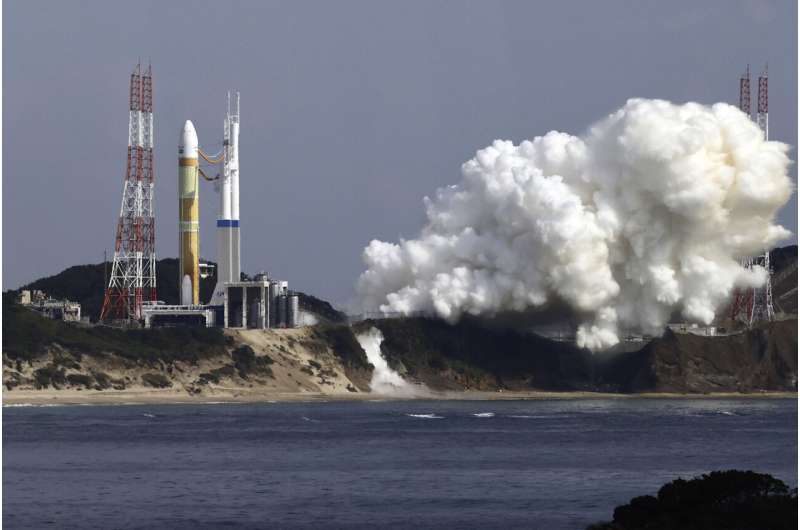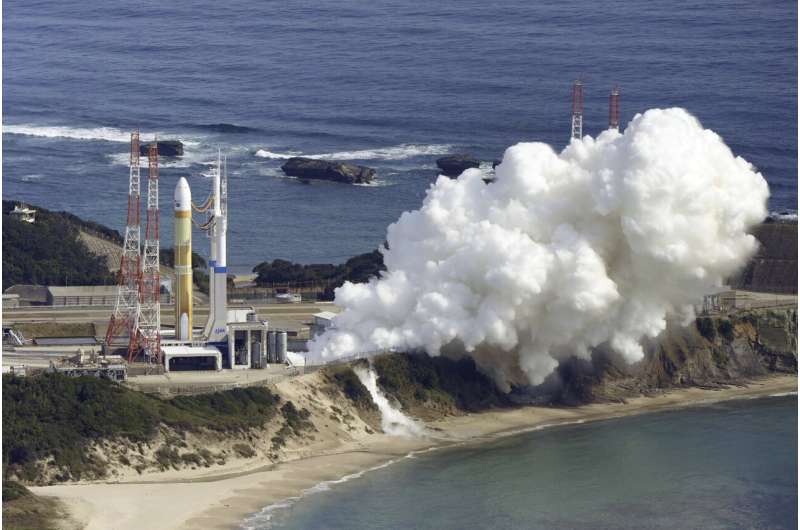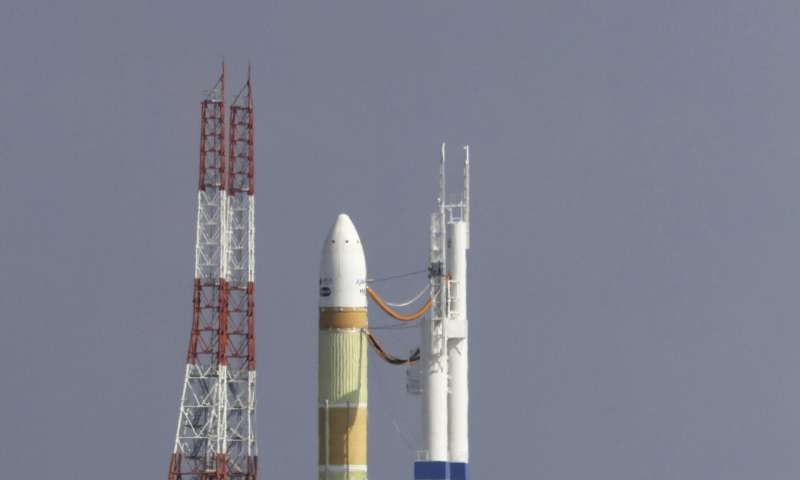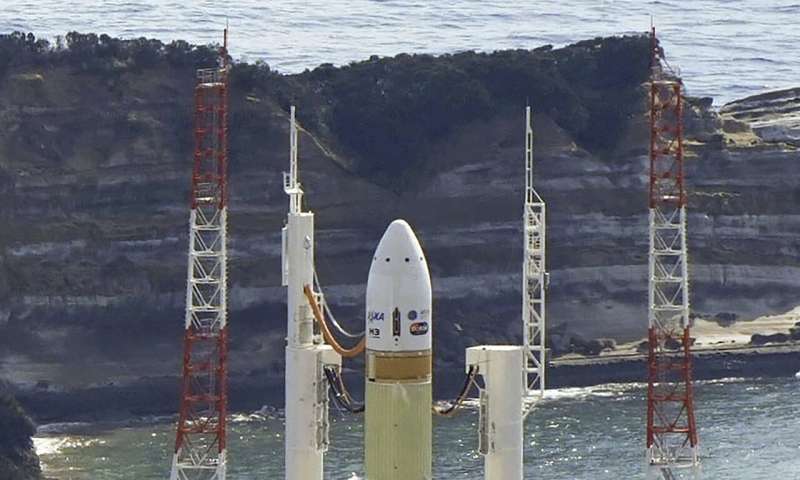Japan aborts launch of 1st H3 rocket carrying defense sensor

The launch of a new flagship series H3 rocket carrying an observation satellite and an experimental infrared sensor that could detect missile launches was aborted Friday after its auxiliary booster engines failed to ignite, Japan’s space agency said.
The countdown had started. The Japan Aerospace Exploration Agency livestream and TV footage showed white smoke billowing from the H3’s main engine. But a pair of auxiliary boosters didn’t subsequently ignite because an automatic signal to do so was not transmitted, JAXA said.
“I know many people were waiting for and looking forward to this day. I’m so sorry and I feel extremely regretful and frustrated myself,” JAXA mission manager Masashi Okada said at a news conference, as he wiped tears.
Okada called it a launch aborted—not a failure—because it was suspended during countdown as a result of safety features that functioned properly.
Still, Friday’s launch problem at the Tanegashima Space Center in southern Japan is a setback for Japan’s space program, which suffered an earlier failed launch in October of an Epsilon-series rocket.
The H3 launch was put off from earlier in the week due to weather after more than a two-year postponement from 2020 because of an engine development delay.
The rocket—Japan’s first new series in more than 22 years—carries an Advanced Land Observation Satellite primarily tasked with earth observation and data collection for disaster response and map-making. The H3 also carried an infrared sensor developed by the Defense Ministry that can monitor military activity including missile launches.

Okada said ignition of the main SE-9 engine was successful, but the subsequent electric signal to ignite a pair of auxiliary booster SRB-3s was not sent after an unidentified abnormality was detected in the process. He said the problem is not related to the engines but most likely in an electrical system of the first stage.
“We will investigate the cause as soon as possible and do our utmost to try again,” Okada said. He did not give a timeline but said he hopes to resolve the problem and attempt another launch before the current launch window closes on March 10.
The 200-billion-yen ($1.5-billion) H3 rocket was jointly developed by JAXA and Mitsubishi Heavy Industries as a successor to the H-2A rocket, which is due to retire after its milestone 50th launch expected within the coming years to end its 20-year service.
-

An H3 rocket sits on the launch pad at Tanegashima Space Center in Kagoshima, southern Japan Friday, Feb. 17, 2023. Japan’s space agency aborted a planned launch Friday of the first of its new flagship series H3 rocket. Credit: Kyodo News via AP
-
![Japan aborts launch of 1st H3 rocket carrying defense sensor]()
An H3 rocket sits on the launch pad after a planned launch at Tanegashima Space Center in Kagoshima, southern Japan Friday, Feb. 17, 2023. Japan’s space agency aborted a planned launch Friday of the first of its new flagship series H3 rocket. Credit: Kyodo News via AP
H3, which is about 60 meters (196 feet) long, can accommodate more satellites and other payloads than the earlier 53-meter (174-foot) -long H-2A model, with its launch cost slashed by half at about 50 million yen ($371,000) by simplifying the design, manufacturing and operation in a bid to be lure more customers for its space launch service.
Space launch business has been increasingly competitive as the industry has been led by SpaceX and Arianespace.
H3 rocket’s main engine was newly developed with fewer parts by altering the combustion method while replacing the majority of rocket components with existing auto parts.
© 2023 The Associated Press. All rights reserved. This material may not be published, broadcast, rewritten or redistributed without permission.
Citation:
Japan aborts launch of 1st H3 rocket carrying defense sensor (2023, February 17)
retrieved 17 February 2023
from https://phys.org/news/2023-02-japan-aborts-1st-h3-rocket.html
This document is subject to copyright. Apart from any fair dealing for the purpose of private study or research, no
part may be reproduced without the written permission. The content is provided for information purposes only.
For all the latest Science News Click Here
For the latest news and updates, follow us on Google News.


